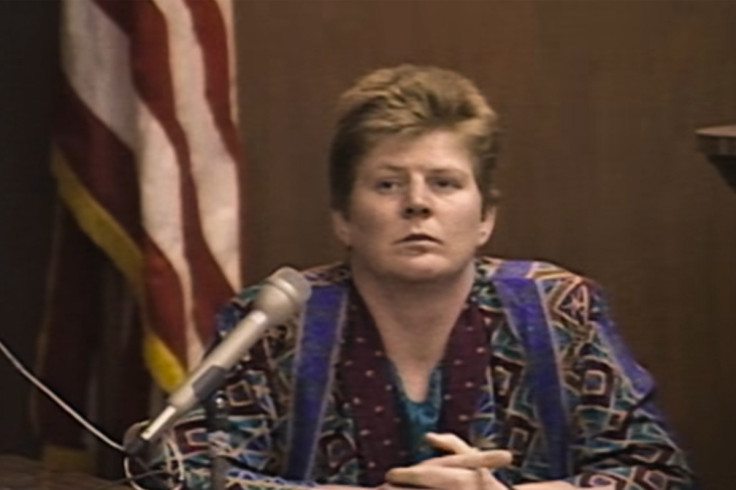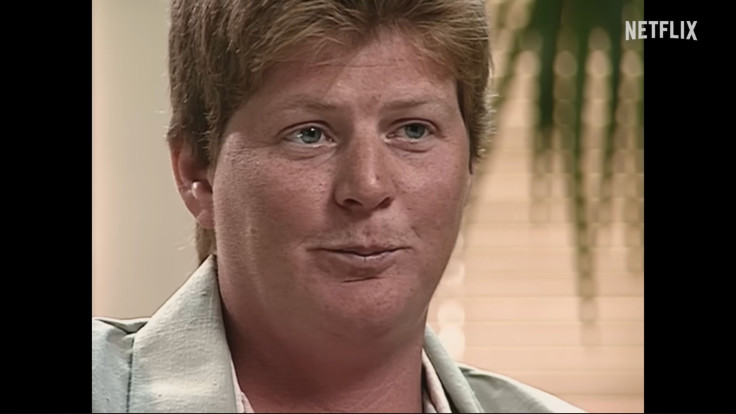Was 'Queen of Serial Killers' Aileen Wuornos' Girlfriend Tyria Moore Involved in the Murders of 7 Men?

KEY POINTS
- Tyria Moore dated Aileen Wuornos from 1986 to 1990.
- She became a key witness who helped secure Wuornos' confession.
- Moore denied any role in the murders and was never charged.
Was Aileen Wuornos' girlfriend, Tyria Moore, just a bystander — or something more? As Netflix's Aileen: Queen of the Serial Killers spotlights the cases, Moore's role in the seven Florida murders—and her decision to help police—remains one of the most haunting mysteries in true crime history.
Aileen Wuornos, often called the 'Queen of Serial Killers,' confessed to killing seven men across Florida between 1989 and 1990 and was sentenced to six counts of death.
At the time of their murders, she was in a romantic relationship with Tyria Moore, a motel maid from Ohio who became her closest companion — and, ultimately, the key to her downfall.
A relationship at the centre of serial killer case
The two met in 1986 at a South Daytona gay bar called Zodiac, bonding quickly and moving in together. Wuornos, then 30, had a turbulent history marked by abuse, homelessness, and a failed marriage to a man 50 years her senior. She described Moore as 'the love of my life' while Moore later said their relationship became 'sister-like' after the romance faded.
Financial pressures quickly strained the couple. Wuornos turned to sex work to support them both, explaining later,
'The only reason I hustled so hard all those years was to support her. I did what I had to do to pay the bills.'
The first murder — and Moore's denial of involvement
Wuornos' first known murder occurred in November 1989, when she fatally shot electronics store owner Richard Mallory, claiming self-defense after an alleged sexual assault. Moore was still living with her at the time. According to court testimony, Wuornos confided in Moore about the killing — but Moore claimed she 'didn't believe it' and refused to discuss it.
Over the next year, Wuornos murdered six more men, all of whom were clients she encountered while hitchhiking or soliciting. Moore reportedly grew suspicious but stayed with her until late 1990, when she left Florida and returned to her parents in Ohio.
The pair's undoing came months later when the two crashed a car belonging to one of Wuornos' victims, Peter Siems. A witness description and palm prints led investigators to both women, and police soon tracked Moore down.
The recorded confession that ended everything
To avoid prosecution, Moore agreed to cooperate with investigators. Acting under police instruction, she called Wuornos in jail in January 1991 and pleaded for the truth, telling her that officers were 'coming after me'.
Wuornos responded emotionally:
'I'm not gonna let you go to jail. Ty, I love you. If I have to confess everything just to keep you from getting in trouble, I will.'
Within hours, she confessed to killing seven men, later insisting she did so in self-defense. Moore, meanwhile, was granted immunity for her cooperation.
At Wuornos' 1992 trial, Moore testified for the prosecution, recounting how her girlfriend had admitted to the first killing. 'I didn't believe it,' she told the court, adding that Wuornos 'didn't appear hurt or upset in any way' when she confessed. Her testimony became a pivotal moment in securing six convictions and six death sentences.
Moore's life after the trial
After testifying, Moore disappeared from public life. She gave a single interview to Dateline in 1992's two-part special Damsel of Death, where she said,
'She was a great person, and I did fall in love.'
Since then, she has refused all further interviews and declined to participate in any media dramatizations — including Monster (2003), which fictionalized her as 'Selby Wall,' played by Christina Ricci.
Despite speculation, there is no evidence that Moore participated in any of Wuornos' crimes. Police and prosecutors have consistently maintained that she was not involved and that her cooperation helped close the case.
Netflix's 2025 documentary reopens old questions
The new Netflix documentary Aileen: Queen of the Serial Killers, directed by Emily Turner, reexamines the case through newly uncovered recordings, archival footage, and unseen interviews from Wuornos' time on death row.
Turner's film portrays Moore as both enabler and savior — the only person Wuornos truly trusted, yet the one who ultimately helped convict her. The documentary refrains from labeling Moore an accomplice, but it highlights her complex position within the case.
'It's fair to say that Tyria doesn't want to be part of telling this story... she was made to choose between loyalty and survival — and that choice defined the end of Aileen's life,' Turner told Tudum.
So, was Tyria Moore involved?
Evidence shows that Tyria Moore was not involved in Aileen Wuornos' murders. She was never charged, and all available records confirm that her role began only after suspicions mounted — when she cooperated with police and elicited the confession that ended the killing spree.
Still, her emotional and moral proximity to the crimes has made her a subject of fascination and moral ambiguity. As Aileen: Queen of the Serial Killers suggests, the truth may lie in that tension: Moore was both witness and survivor, the woman who loved a killer and the one who stopped her.
© Copyright IBTimes 2025. All rights reserved.






















